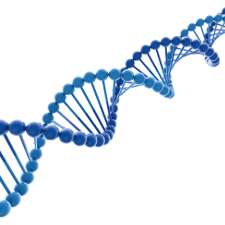DNA delivery technology joins battle against drug-resistant bacteria

Antimicrobial resistance is one of the biggest threats to global health, affecting anyone, at any age, in any country, according to the World Health Organization. Currently, 700,000 deaths each year are attributed to antimicrobial resistance, a figure which could increase to 10 million a year by 2050 save further intervention.
New breakthrough technology from Tel Aviv University facilitates DNA delivery into drug-resistant bacterial pathogens, enabling their manipulation. The research expands the range of bacteriophages, which are the primary tool for introducing DNA into pathogenic bacteria to neutralize their lethal activity. A single type of bacteriophage can be adapted to a wide range of bacteria, an innovation which will likely accelerate the development of potential drugs based on this principle.
Prof. Udi Qimron of the Department of Clinical Microbiology and Immunology at TAU's Sackler Faculty of Medicine led the research team, which also included Dr. Ido Yosef, Dr. Moran Goren, Rea Globus and Shahar Molshanski, all of Prof. Qimron's lab. The study was recently published in Molecular Cell and featured on its cover.
For the research, the team genetically engineered bacteriophages to contain the desired DNA rather than their own genome. They also designed combinations of nanoparticles from different bacteriophages, resulting in hybrids that are able to recognize new bacteria, including pathogenic bacteria. The researchers further used directed evolution to select hybrid particles able to transfer DNA with optimal efficiency.
"DNA manipulation of pathogens includes sensitization to antibiotics, killing of pathogens, disabling pathogens' virulence factors and more," Prof. Qimron said. "We've developed a technology that significantly expands DNA delivery into bacterial pathogens. This may indeed be a milestone, because it opens up many opportunities for DNA manipulations of bacteria that were impossible to accomplish before.
"This could pave the way to changing the human microbiome—the combined genetic material of the microorganisms in humans—by replacing virulent bacteria with a-virulent bacteria and replacing antibiotic-resistant bacteria with antibiotic-sensitive bacteria, as well as changing environmental pathogens," Prof. Qimron continued.
"We have applied for a patent on this technology and are developing products that would use this technology to deliver DNA into bacterial pathogens, rendering them a-virulent and sensitive to antibiotics," Prof. Qimron said.
More information: Ido Yosef et al, Extending the Host Range of Bacteriophage Particles for DNA Transduction, Molecular Cell (2017). DOI: 10.1016/j.molcel.2017.04.025
Journal information: Molecular Cell
Provided by Tel Aviv University



















